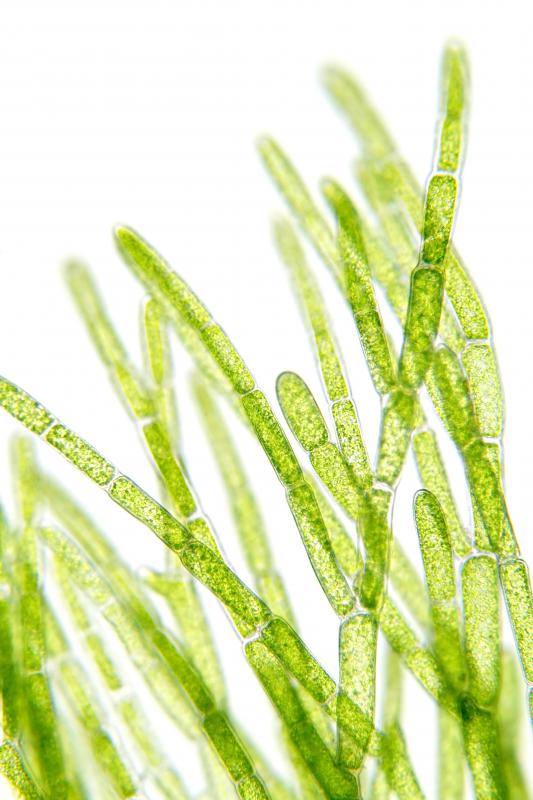At WiseGEEK, we're committed to delivering accurate, trustworthy information. Our expert-authored content is rigorously fact-checked and sourced from credible authorities. Discover how we uphold the highest standards in providing you with reliable knowledge.
How do I Become a Phycologist?
Phycology is a subspecialization within the field of botany. Phycologists study algae. Algae is a type of plant life that typically lives in an aquatic environment. If you wish to become a phycologist, you generally will need a college degree and a postgraduate degree.
Earning a bachelor's degree in botany is helpful if you hope to become a phycologist. There will be emphasis on botany in a generalized form. Coursework will include topics such as plant ecology, biometry, plant physiology, plant diversity, and plant taxonomy.

Typically, you will apply for graduate study in botany during the final year of the college degree. The Doctor of Philosophy (PhD) degree in botany is generally recommended for anyone who wants to become a phycologist. Identify a graduate school program in botany that has a program in phycology or that has a professor on faculty who has done substantial work in phycology as a specialization within the field of botany. The professor who specializes in botany could serve as a mentor and a supervisor for your research as a doctoral student if you are accepted to the doctoral program.

The doctoral program in botany will most likely require an internship. Do your internship in phycology if you want to become a phycologist. This will enable you to learn more about phycology as a specialty within botany. Also, the internship will enable you to network with others already working as phycologists. In this way, you can learn much about the profession and get valuable career advice.
Upon completion of the doctoral program, join a professional organization affiliated with phycology if you want to become a phycologist. For example, you could join the Botanical Society of America (BSA) or the Phycological Society of America (PSA). Being a member of either of these organizations will not only help you to learn more about the phycology profession but the organizations also typically publish job listings. Looking through the job lists could help you to find a phycology job.
Seek a job in phycology during the final year of the doctoral program. Looking at the list of jobs at the Botanical Society of America (BSA) or the Phycological Society of America (PSA) website will likely prove to be a useful starting point in your search for a job. Also, the career services department at your college will be able to help you identify some phycology jobs you can apply for. Another thing to keep in mind is that asking your internship supervisor for help could prove useful.
Phycologists often work as professors who teach college courses in botany. Granted, there are other work options. For example, if you become a phycologist, you could work for a biotechnology company or you could work for the government. You could also work for a biofuel company or oil company. Algae produce oil and that is why biofuel companies or oil companies need phycologists who study algae.
AS FEATURED ON:
AS FEATURED ON:












Discuss this Article
Post your comments